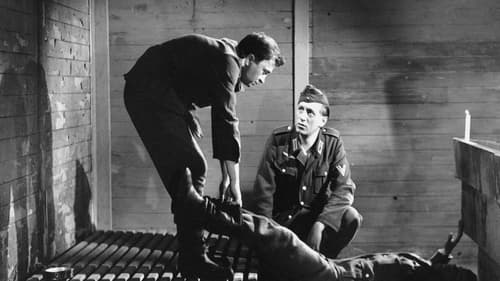
Director of Photography
24 hours on the border between East and West Germany. In an outlying West Berlin district, police officers chat about their personal lives, take care of petty offence and at most, warn the odd rubbernecker away from the border to the “Soviet zone”. Meanwhile their East German counterparts are under enormous pressure. The day begins with disciplinary action after one of the border guards was found sleeping on duty. The supervisors demand utmost vigilance and a solid ideological bent, and suspicion and mistrust are the rule within the ranks of these soldiers of the National People’s Army (NVA). Unnoticed by the soldiers, four East Berlin students are preparing to flee to the west. But in the morning mists, only their accomplice, an NVA private, succeeds …

Camera Department Manager

Director of Photography

Director of Photography

Director of Photography
Film by Frank Vogel.

Director of Photography
Claudia is a self-confident girl who spends time in a Young Pioneer camp and wants to prove that she can keep up with the boys in a scouting wide game.

Director of Photography

Director of Photography

Director of Photography
Railway employee Fritz Marr is not regarded well by his superiors. It is the year 1920, and trains regularly pass the railway hub of Erfurt to the East to secretly transport weapons for the fight against the young Soviet Union. Marr knows about this and wants to mobilise other workers to stop these illegal deliveries. To muzzle him, Marr is relocated to a remote rail work construction site.

Director of Photography

Director of Photography
East Germany's contribution to the 1957 Cannes Film Festival was the wartime melodrama Betrogen bis zum Juengsten Tag. Had the film been released in the U.S., the title would probably have translated to Duped Till the Last. The film condemns the Nazi mindset by concentrating on a particularly odious cover-up. When his son is involved in the accidental killing of a girl, a Gestapo general pulls strings to save the boy from prosecution. The general manages to pin the blame for the killing on a group of Russians, whereupon he gives the men under his command carte blanche to round up and execute as many innocent Russians as they wish. This act of brutality is contrasted with the pangs of guilt suffered by the son and his co-conspirators.

Director of Photography
The two half-orphans Reni and Rolf are 13 and 10 years old and they live with their grandmother in Berlin. Their father has died during the war, their mother works at a Baltic Sea port. Here she meets a captain who wants to marry her. When their mother tells them about the planned wedding, Reni and Rolf are reluctant to meet the captain.

Cinematography

Cinematography
The economic and cultural improvements of the Soviet Occupied Sector are documented with scenes from the years 1945 to 1950. The film deals with the land reform, the founding of the Socialist Unity Party, the expropriation of war criminals, the founding of the GDR and the first Five Year Plan in July 1950. Special attention is dedicated to the setup of the steel industry. All this is shown in contrast to the new Federal Republic of Germany, where unemployment, slums and the West Berlin airlift prevail. The Cold War of those years is reflected in the film as well as a part of the development of post-war Germany.

Camera Operator





